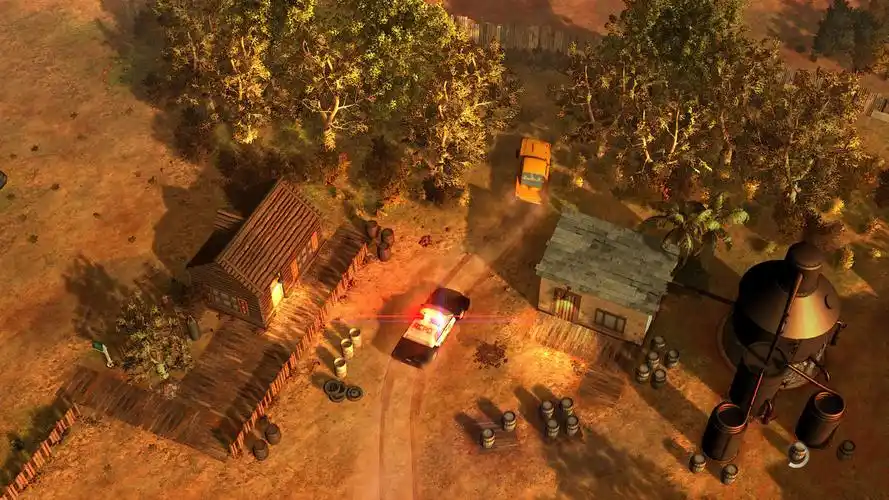The Next Level: How AI, VR, and Blockchain Will Revolutionize Game Journalism
The landscape of video game journalism is on the cusp of a seismic shift. For decades, the cycle has been largely predictable: trailers drop, review copies are distributed, and articles are published. While digital media accelerated the pace, the fundamental structure remained. However, a confluence of emerging technologies—Artificial Intelligence (AI), Virtual Reality (VR), and Blockchain—is poised to dismantle this model, ushering in an era of "deep game news." This new paradigm will move beyond surface-level reporting to offer immersive, hyper-personalized, and profoundly credible content, fundamentally enhancing how we discover, understand, and engage with the world of games.
The AI Newsroom: Personalization and Automated Deep-Dives
The most immediate and impactful change will be driven by Artificial Intelligence. AI's role will extend far beyond simple automated news aggregation. We are entering the age of the AI analyst and personalization engine.
Imagine a platform that doesn't just show you the latest news about your favorite RPG; it understands your preferences. Using deep learning algorithms, it will analyze your playstyle, the genres you spend the most time in, and even the specific game mechanics you enjoy. This AI curator will then scour the entire digital landscape—from major publications to obscure forums and developer livestreams—to deliver a perfectly tailored news feed. Instead of a generic article on "Cyberpunk 2077's New DLC," you might receive a deep-dive analysis specifically focusing on how the update changes the netrunning skill tree, because the AI knows that’s your preferred playstyle.
Furthermore, AI will power a new form of analytical journalism. Natural Language Processing (NLP) models will be able to ingest thousands of lines of patch notes, developer interviews, and code commits (from open-source projects) to generate insightful reports on the spot. An AI could instantly compare a game’s current state with its state at launch, highlighting subtle balance changes and meta shifts that would take a human writer hours to compile. This allows for "instant deep dives," providing the community with meaningful, data-driven context within minutes of an update going live.
Immersive Reporting: The Virtual Reality Revolution
While AI personalizes the content, Virtual Reality will transform the medium itself. Text-based articles and video reviews will be supplemented—and sometimes replaced—by fully immersive experiences. Game journalists will no longer just tell us about a game's world; they will show us by taking us inside it.

Picture a VR-based news segment from a games journalist reporting directly from the fantastical city of "The Elder Scrolls VI" or the war-torn streets of the next "Call of Duty." Instead of watching a video preview, you could put on a headset and stand beside the journalist as they demonstrate a new environment, interact with NPCs, or showcase a new weapon. This level of immersion provides an unparalleled sense of scale, atmosphere, and gameplay feel that flat screens cannot replicate.
This technology also opens doors for incredible post-release analysis. A critic could create a VR documentary walking through the evolution of a game’s map, using save states to show how an area changes from beginning to end. Investigative pieces on game development could feature virtual recreations of developer studios or 3D models of cut content that users can examine from every angle. VR turns game news from a passive consumption activity into an active exploration, creating a deeper emotional and intellectual connection to the stories being told.
Blockchain and Provenance: The Trust Layer for Gaming News
The gaming community often grapples with issues of credibility, from concerns over review score integrity to the spread of misinformation about upcoming releases. Blockchain technology offers a powerful solution by introducing verifiable transparency and proof-of-experience.
One of the most compelling applications is the verifiable review. A blockchain-based system could cryptographically confirm that a journalist has actually played the game they are reviewing. By linking a unique, time-statted gameplay hash from the user's system to their published review, readers can have immutable proof that the critic's opinion is based on firsthand experience, not just marketing materials or secondhand accounts. This creates a new "trust layer" for game criticism.
Similarly, blockchain can be used to combat leaks and misinformation. When a developer announces a project, key details could be recorded on a blockchain. Later, when journalists report on leaks, the community could, in theory, verify their authenticity against the official record. Furthermore, for community-driven news sites, blockchain-based tipping systems (using cryptocurrencies or NFTs) could allow readers to directly and micro-tip journalists for breaking news or exceptional investigative work, creating new revenue models that reward quality and speed.
The Human Element in a Tech-Driven Future
Despite the promise of these technologies, the role of the human journalist will remain irreplaceable, though it will evolve. AI can parse data and VR can create immersive spaces, but they cannot replicate human empathy, critical cultural analysis, and narrative storytelling. The future game journalist will be a conductor of this technological orchestra. They will use AI tools to handle data-heavy lifting, employ VR to craft compelling narratives, and leverage blockchain to build trust, all while applying their unique human perspective to provide the context, humor, and critical insight that machines cannot generate.
The fusion of these technologies promises a future where game news is more engaging, trustworthy, and profoundly insightful. We are moving from a one-size-fits-all model to a dynamic, interactive ecosystem of information. The news won't just be something you read; it will be an experience you step into, a story tailored specifically for you, and a report you can verify for yourself. The future of game journalism is not just about reporting on the next level of games; it's about using the next level of technology to report on them.


















